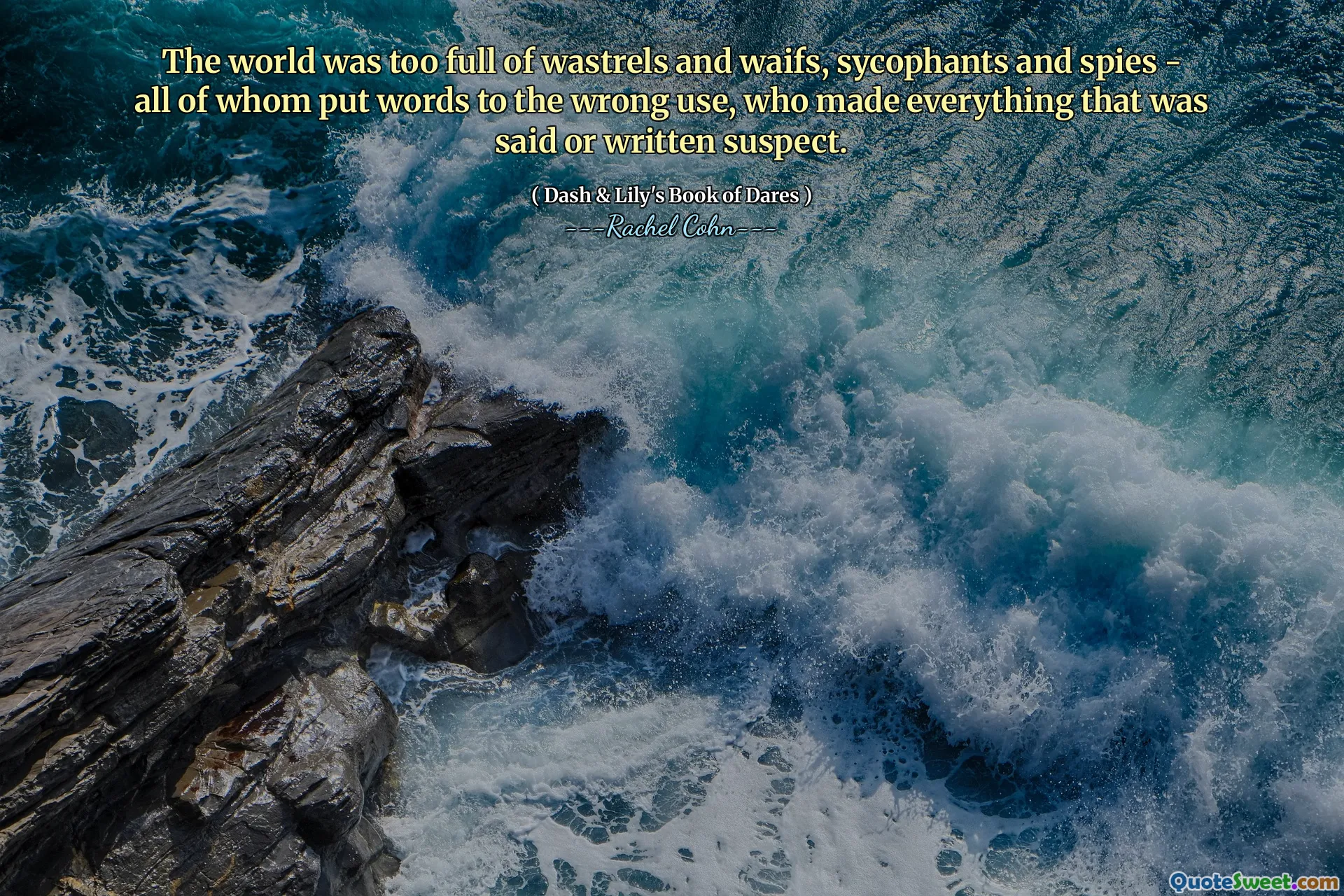
The world was too full of wastrels and waifs, sycophants and spies - all of whom put words to the wrong use, who made everything that was said or written suspect.
This quote highlights a profound skepticism about the integrity and reliability of communication within society. It suggests that many individuals occupying various social roles—be they irresponsible, vulnerable, overly flattering, or espionage-minded—contribute to a climate of suspicion and mistrust. Such a setting makes it difficult to discern truth from deception, as words and writings are often twisted or used for selfish or malicious purposes. The presence of wastrels and waifs indicates societal neglect and vulnerability, while sycophants and spies symbolize manipulation and espionage, emphasizing the fragility of authentic communication. This reflection resonates deeply in contexts where misinformation, propaganda, and betrayal are commonplace, painting a picture of a world where sincerity is hard to find and genuine connection is obscured. When trust erodes, the entire fabric of societal discourse comes into question, making it challenging to establish genuine understanding or meaningful relationships. The phrase compels us to consider the importance of discernment and integrity in dialogue, urging vigilance against the distortion of words. In this sense, the quote serves as a potent reminder that language, when corrupted, can undermine the very foundations of trust and understanding required for a just and cohesive society, especially in times of turmoil or uncertainty.









